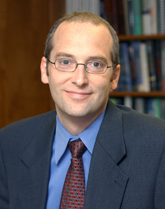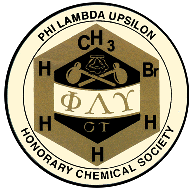Clark Lecture 2007

The Spring 2007 Friend E. Clark Lectures were held on March 12 & 13, 2007 at the C. Eugene Bennett Department of Chemistry at West Virginia University. The Clark Lecturer was John F. Hartwig from the University of Illinois at Urbana-Champaign. Dr. Hartwig gave two talks; the first titled "The Organometallic Chemistry of Metal-Heteroatom Bonds" and the second "Catalyst Design in Chemistry and Beyond." We thank Dr. Hartwig for taking the time to visit West Virginia University and be a part of the 47th Lectures.
Abstracts
The Organometallic Chemistry of Metal-Heteroatom Bonds
March 12, 2007, 5:00 p.m., Clark Hall 208
Organometallic chemistry, by definition, focuses on the synthesis, structures, and reactions of complexes with metal-carbon bonds. My group has sought to extend the reach of organometallic chemistry to related compounds containing metal-nitrogen, -oxygen, -sulfur, and –boron bonds. To do so, we have sought examples of amido, alkoxo, thiolato, and boryl compounds that undergo some of the fundamental reactions of organometallic chemistry. While doing so, we have sought to understand how the electronic properties of the heteroatom will affect reactions that originated with compounds containing metal-carbon bonds. Examples of these reactions and the electronic parameters that affect the rates and scope of these reactions will be presented in this talk, along with relevance of these reactions to emerging synthetic methods.
Catalyst Design in Chemistry and Beyond
March 13, 2007, 4:00 p.m., Hodges Hall 260
From Prozac to perfume, sutures to Subarus, catalysis provides the high quality of life to which we have become accustomed. The reduced emissions of modern cars, the abundance of fresh food at our stores, and the new pharmaceuticals that improve our health are made possible by chemical reactions controlled by catalysts. Catalysts make chemical reactions occur faster and more selectively; in most cases the reactions they induce in minutes or hours would take entire geological periods to occur in their absence. Research in my group seeks to invent new chemical reactions that occur by the action of catalysts containing a metal atom, such as rhodium, iridium, or palladium, as the central and reactive element. Perhaps most important, research in my group seeks to develop the principles and strategies by which catalysts can ultimately be designed. Examples of the role of catalysts in general, and examples of the development of catalysts within my group will be described in this lecture.
2007
Clark Lecture Pamphlet
|
|
|
|||
|
|
|
|||
|
|
|||||
For a better view try the .pdf file here.
To view the 2007 Clark Lecture flyer click here (.doc) or here (.pdf).




